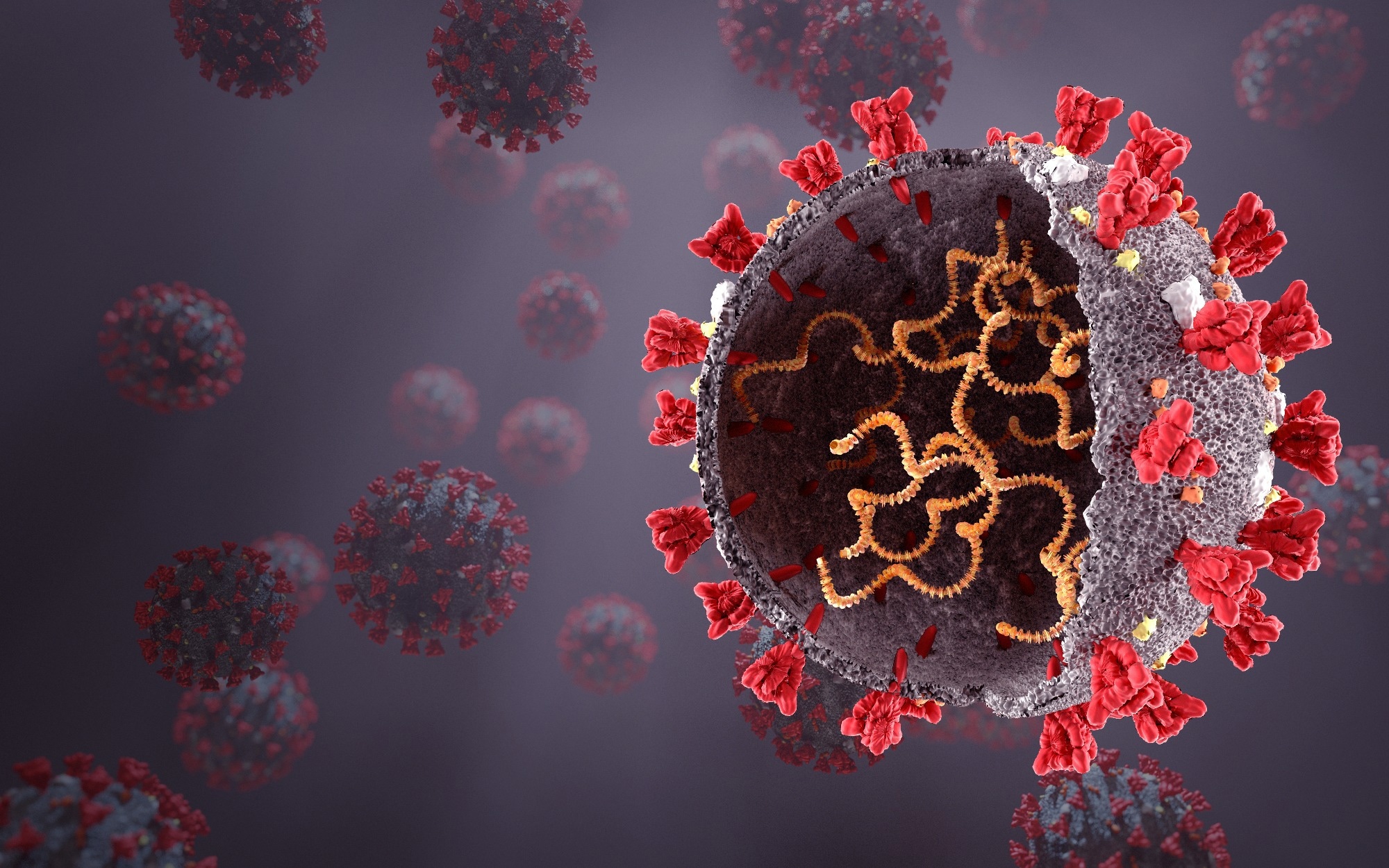In a recent preprint* study posted to the bioRxiv server, a team of researchers analyzed the virological characteristics and epidemiological impact of the Severe Acute Respiratory Syndrome Coronavirus 2 (SARS-CoV-2) FLiRT variant KP.2, which has demonstrated increased transmissibility and immune resistance.
 Study: Virological characteristics of the SARS-CoV-2 KP.2 variant. Image Credit: Orpheus FX / Shutterstock
Study: Virological characteristics of the SARS-CoV-2 KP.2 variant. Image Credit: Orpheus FX / Shutterstock

 This news article was a review of a preliminary scientific report that had not undergone peer-review at the time of publication. Since its initial publication, the scientific report has now been peer reviewed and accepted for publication in a Scientific Journal. Links to the preliminary and peer-reviewed reports are available in the Sources section at the bottom of this article. View Sources
This news article was a review of a preliminary scientific report that had not undergone peer-review at the time of publication. Since its initial publication, the scientific report has now been peer reviewed and accepted for publication in a Scientific Journal. Links to the preliminary and peer-reviewed reports are available in the Sources section at the bottom of this article. View Sources
Background
The rapid emergence and diversification of the JN.1 variant and its descendant, KP.2, which shows significant alterations in spike (S) protein structure and increased resistance to existing vaccines, underscore the necessity for further research to understand the implications for public health and vaccine development.
About the study
The present study was initiated by analyzing the genomic sequences of the KP.2 variant from surveillance data across the United States of America (USA), United Kingdom, and Canada, where over 30 sequences were reported. The relative effective reproduction number (Re) was calculated using a Bayesian multinomial logistic regression model, adjusting for various covariates that could influence transmission dynamics.
Subsequently, virological assays were conducted to evaluate the infectivity and immune evasion capabilities of KP.2. Lentivirus-based pseudovirus assays were performed using Human Osteosarcoma cells (HOS)- Angiotensin-Converting Enzyme 2 (ACE2)/Transmembrane Protease, Serine 2 (TMPRSS2) cells infected with pseudoviruses bearing the S proteins of KP.2, JN.1, and other relevant variants. The quantity of input virus was standardized against the Human Immunodeficiency Virus Type 1 (HIV-1) Protein 24 (p24) capsid protein. Statistical analysis was carried out using two-sided Student's t-tests to determine significant differences in infectivity between the variants.
For the neutralization assays, serum samples were collected from individuals in various immunization and infection states. These included vaccinated individuals both with and without prior infections and those who had recovered from specific variant infections. Each serum sample was tested in quadruplicate against pseudoviruses harboring different S protein mutations. The 50% neutralization titers (NT50) were calculated and compared across all serum samples to assess the degree of neutralization resistance posed by KP.2. Statistical significance of the differences in NT50 values was evaluated using two-sided Wilcoxon signed-rank tests.
Study results
The study revealed that the KP.2 variant, a descendant of the JN.1 lineage, demonstrates significantly enhanced epidemiological fitness compared to its predecessors, including the dominant XBB lineage. This finding is confirmed by the Re estimated for KP.2 in the USA, United Kingdom, and Canada, where it was observed to be 1.22, 1.32, and 1.26 times higher than JN.1, respectively. The spread of KP.2 has been rapid, with its variant frequency reaching 20% in the United Kingdom as of early April 2024, suggesting a potential to become the predominant lineage globally.
Further virological investigation into KP.2 using a lentivirus-based pseudovirus assay highlighted a paradox wherein, despite its higher transmissibility, the infectivity of KP.2 was found to be significantly lower (10.5-fold) than that of JN.1. This reduced infectivity might suggest different mechanisms or pathways for KP.2's enhanced spread and establishment in the host populations.
In addition to infectivity, resistance to neutralization was assessed through assays using sera from individuals vaccinated with the monovalent XBB.1.5 vaccine and those who had breakthrough infections with various SARS-CoV-2 variants. KP.2 exhibited significant resistance to neutralization, with a 3.1-fold reduction in susceptibility to neutralization by sera from vaccines without infection and a 1.8-fold reduction from those with prior infections. This increased resistance could partially explain the higher Re of KP.2, indicating an enhanced ability to evade immune responses compared to JN.1 and other previous variants.

 This news article was a review of a preliminary scientific report that had not undergone peer-review at the time of publication. Since its initial publication, the scientific report has now been peer reviewed and accepted for publication in a Scientific Journal. Links to the preliminary and peer-reviewed reports are available in the Sources section at the bottom of this article. View Sources
This news article was a review of a preliminary scientific report that had not undergone peer-review at the time of publication. Since its initial publication, the scientific report has now been peer reviewed and accepted for publication in a Scientific Journal. Links to the preliminary and peer-reviewed reports are available in the Sources section at the bottom of this article. View Sources
Journal references:
- Preliminary scientific report.
Yu Kaku, Keiya Uriu, Yusuke Kosugi, et al. Virological characteristics of the SARS-CoV-2 KP.2 variant, bioRxiv (2024), doi: 10.1101/2024.04.24.590786, https://www.biorxiv.org/content/10.1101/2024.04.24.590786v1
- Peer reviewed and published scientific report.
Virological characteristics of the SARS-CoV-2 KP.2 variant, Kaku, Yu et al., The Lancet Infectious Diseases, Volume 24, Issue 7, e416, https://www.thelancet.com/journals/laninf/article/PIIS1473-3099(24)00298-6/fulltext